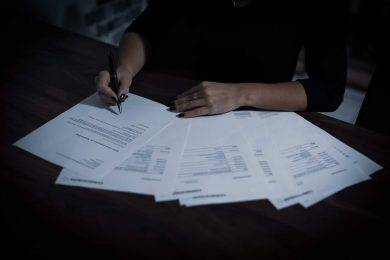If there’s one phrase that’s guaranteed to tie the stomach of the average small business owner in knots, it’s ‘tax investigation’. In reality, however, there’s very little to worry about, provided that you have nothing to hide. What matters in these situations is the extensiveness and efficiency of your preparation.
You can think of an HMRC tax investigation as a particularly thorough kind of financial audit. If your business’s accounts are meticulous and comprehensible, then you’ll make it easy for the investigators to establish whether you’re fulfilling your tax obligations. If they’re difficult to understand, then you may give the impression that you have something to hide.
What steps should a business take?
If you’ve received the first contact from HMRC, it’s easy to panic. But naturally, this would be counterproductive.
Instead, your first step should be to contact someone to act on your behalf. Professional legal help will give you the best possible chance of getting through the investigation unscathed, and it could actually save you money in the long run, especially if there are errors in your accounts which might incur the wrath of the taxman.
Ideally, you wouldn’t wait until HMRC gets in touch to take action. By proactively getting your accounts in order, and putting in place the necessary expertise, you’ll ensure that your business is prepared to withstand a tax investigation – no matter when it arrives. If your accounts are being regularly checked over by a qualified accountant, then you’ll reduce the chance of your inadvertently throwing up a red flag.
What should I keep records of?
Ideally, your financial records should include PAYE details, tax credit claims, and all of the deductions you’ve made against your earnings. The more accurate and timely your record-keeping, the less likely that the investigators will seek to dig deeper. If the investigators request a given piece of information or document, then it’s in your interest to provide it as swiftly as possible.
How long should my records go back?
If the investigators decide that it’s necessary, they may request historical records to take a look at. These might go back a maximum of six years. As such, it’s beneficial to start keeping accurate records as early as possible, and to get financial audits conducted regularly. You can think of these as test runs for when the real tax investigation gets underway.
My name is Sardar Ayaz a professional content writer and SEO expert having Proven record of excellent writing demonstrated in a professional portfolio Impeccable grasp of the English language, including idioms and current trends in slang and expressions. I have ability to work independently with little or no daily supervision with strong interpersonal skills and willingness to communicate with clients, colleagues, and management.
I can produce well-researched content for publication online and in print, organize writing schedules to complete drafts of content or finished projects within deadlines. I have 12 years’ experience to develop related content for multiple platforms, such as websites, email marketing, product descriptions, videos, and blogs.
I use search engine optimization (SEO) strategies in writing to maximize the online visibility of a website in search results











